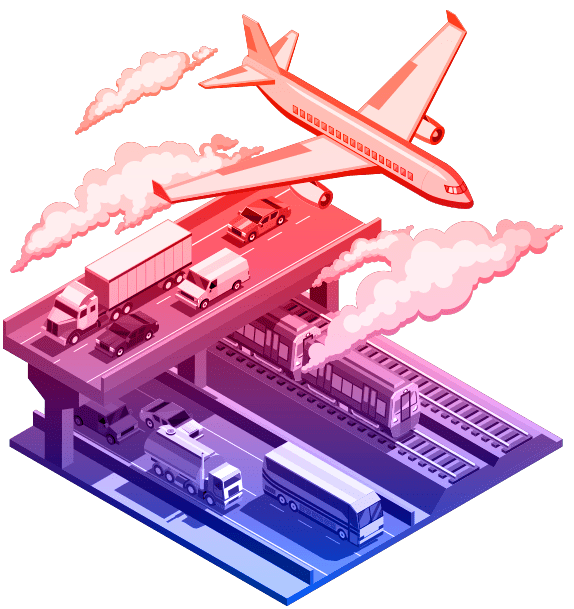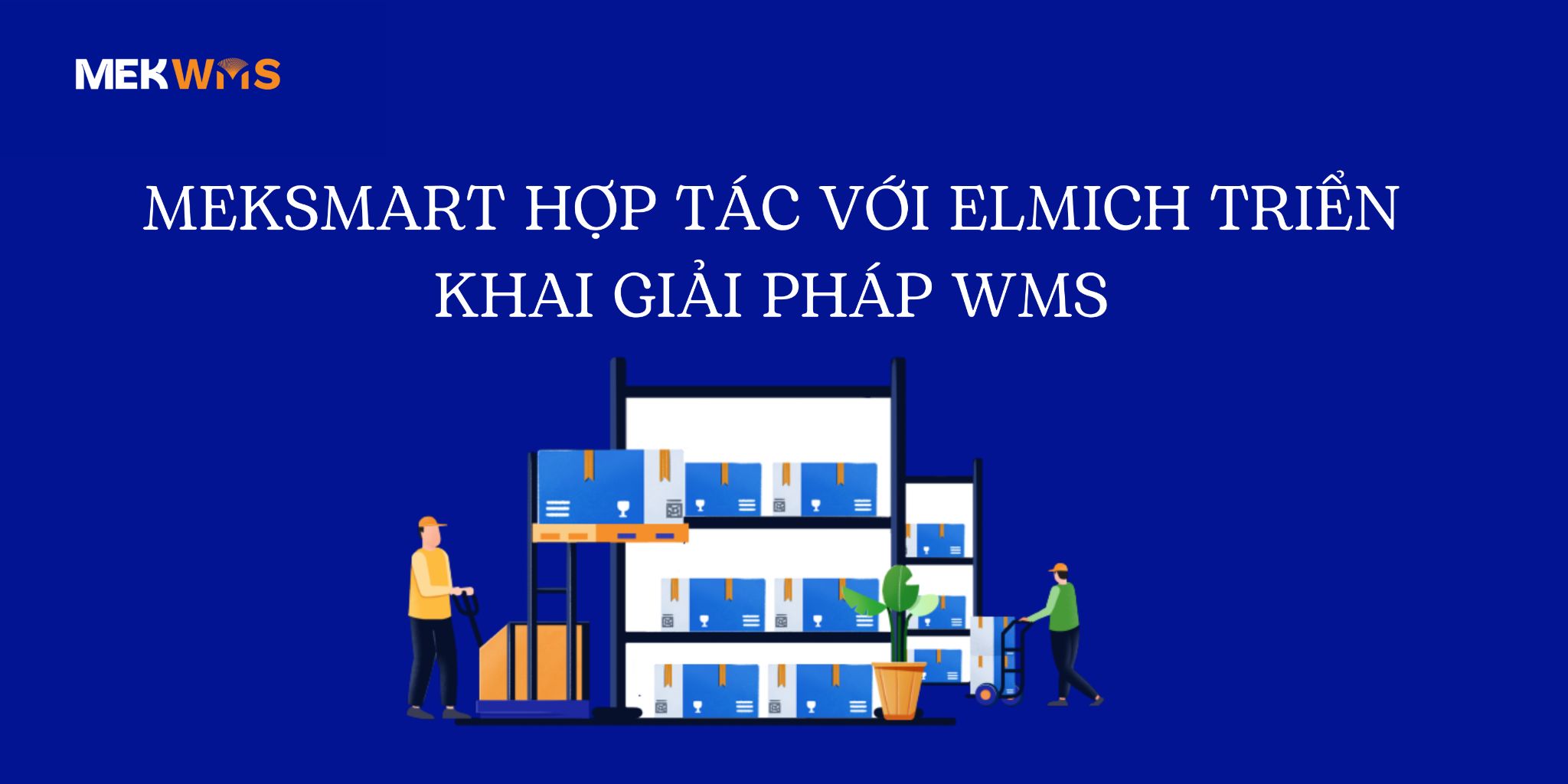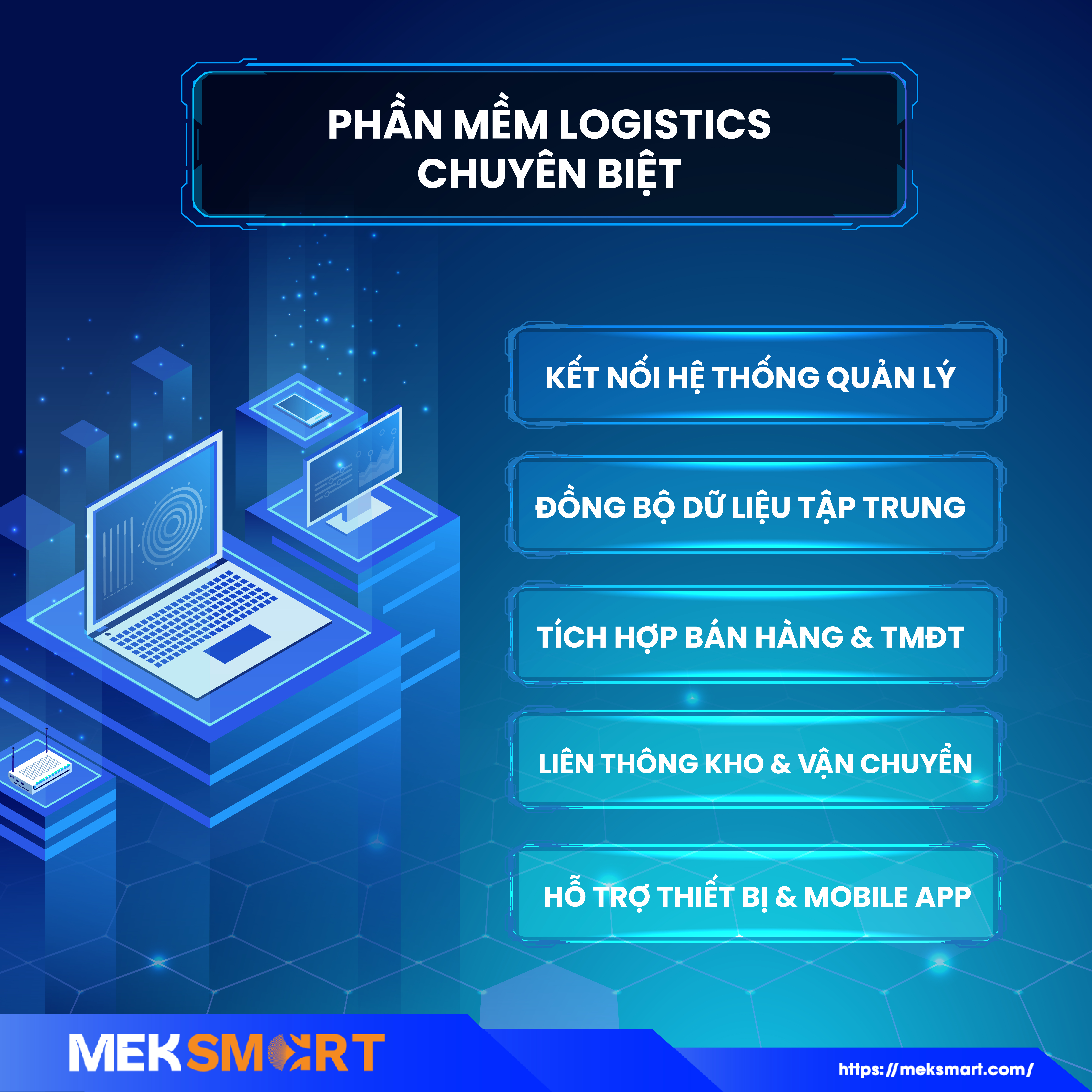MEKSMART
GENERAL NEWS
Author: Meker Meksmart
Update: 29/11/2022
THE FUTURE OF TRANSPORT MANAGEMENT SYSTEM
The transportation industry, an essential part of global logistics of which Transportation Management Systems (TMS) are at heart, has seen incredible development over the past few decades.
With each new launch in logistics technology and TMS, the industry may have another alternative transportation option. Technologies are significantly innovated, and consumer demand is growing dramatically.
Information technology is driving a strong focus on logistics and supply chain management by transportation companies, 3PLs, etc. TMS (Transportation Management Systems) or Transport Management System plays an important role in trip management, freight payment, and trading partner cooperation.
Find out the future of transport management systems in today's article.

What Is The Future Of Transport Management Systems?
Parcel shipment
Traditionally, TMS has only focused on major delivery methods such as Full truckload (FTL) and LTL (less than truckload LTL). But everything has changed!!!
Today, customers expect smaller and more frequent shipments from their suppliers, thereby shifting towards parcel shipping. Similarly, industry experts recommend using a TMS capable of handling parcel shipments in addition to the two traditional methods above.
International shipping capabilities
In today's global economy, along with domestic delivery, shippers increasingly have international shipments. So companies need a program to help them choose which airline or shipping line and easily manage international shipments.
That means having a common platform that supports all shipping methods, provides multilingual support, allows the use of foreign currencies, and calculates any cross-border fees and taxes, value-added, and freight forwarding fees if any.
Combined/multi-modal transportation equipment
This method allows shipments to be transported through more than one mode of transport. A TMS equipped with such a feature requires a suite of programs that integrates with any mode of transportation, able to track real-time changes in methods of transport at any given time.
This TMS must also provide transparency in shipments and accurate transit time calculations.
Automatic bill payment
Automated freight audits and invoicing are also an integral part of the shipping cycle, and a TMS equipped with this feature would certainly be preferred over the others.
It will help streamline the process, allowing shipment confirmation and payment, and solve overcharges or other issues related to partners and customers.
In addition, the ability to synchronize with the company's ERP system or any other financial system will allow efficient processing of payment procedures.
Ability to track and trace packages
The TMS must be able to exchange real-time shipment information with carriers, distributors, and final consignees.
This track and trace feature, which shares news throughout the supply chain, increases visibility and tracking accuracy, ensures transport monitoring functionality, and effectively enables transportation management and reporting.
Maintain visibility of package status
Today's tech-savvy customers know the status of their shipments turn-by-turn. You cannot just say that the shipment has been delivered; you need to provide the parcel's exact location.
This visibility feature helps achieve a detailed view of the entire shipping process, ultimately making management easier. Proactive freight management also helps maintain the best balance between supply and demand.
Business analytics & intelligence
By analyzing consumer shopping behavior and other information available, an effective TMS must provide intelligent options and identify critical areas for functionality enhancement to help the company evaluate its current strategy and make effective decisions.
This can be done through data warehouses, standard and custom report generation, and dashboards powered by a TMS.
The introduction of EDI
Communication, if linked to EDI standards, helps to create a dominant focal point, thereby increasing visibility into the organization's core functions and significantly reducing workload by traditional papers.
Thus, a TMS integrated with EDI delivers data with high accuracy, speed, and secure data exchange, while contributing to a greener supply chain.
Integrated Freight Management Service
When integrated with an efficient TMS, this module will provide real-time information about the warehousing facility, including inventory delivery-receiving, material tracking, and deliveries.
Shipments and other similar KPIs. Such real-time information helps make better decisions and reduces potential risk factors. Furthermore, shipment claims, customer support, accounting, and more will provide greater ease and value.
Effective transportation management plays an important role in shaping the success of a company's distribution system, and technology is a key link in delivering optimization and improvement in transportation load.
As a result, adopting automated solutions with the above features will greatly facilitate optimized functional operations, expanding the company's operational flow and adding value to the entire supply chain.
Wrapping up
At Meksmart, we offer a comprehensive solution to address the problems and challenges outlined above. We work with transport and logistics organizations to find breakthrough optimal digital solutions to bring the transportation industry to a new level.






